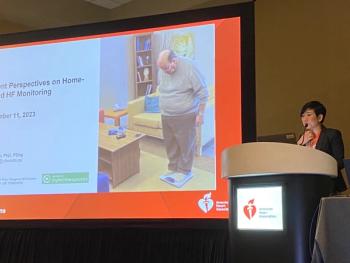
Healthcare leaders discussed digital health during the recent American Heart Association conference, outlining the potential and pitfalls. Often, setbacks aren’t related to the technology.

Healthcare leaders discussed digital health during the recent American Heart Association conference, outlining the potential and pitfalls. Often, setbacks aren’t related to the technology.

This is the latest offering by Express Scripts that aims to bring transparency to prescription drug costs.

Payers must be early adopters of managing genetic testing through DEX Z-Codes, combined with science-based policies and policy adherence and claims editing technology.

The Biden administration is looking at a policy change that would enable more older Americans to get oral and injectable medications.

Ejection fraction is a key factor in how clinicians diagnose, classify and treat heart failure. But you might not know it if you depended solely on ICD-10 codes.

First in class, biosimilars, oncology drugs and even some generics have been added to Optum Rx’s list of exclusions for 2024.

Researchers reported positive results at the AHA meeting today from a small, 48-patient study of lepodisiran, a short interfering RNA therapy designed to reduce lipoprotein(a) levels.

Ten patients have been treated with the CRISPR-based gene therapy, the drug developer's chief scientific officer announced today, and high doses have had the intended effect of lowering LDL cholesterol. One study volunteer died five weeks after the infusion from cardiac arrest, but the company says the death was unrelated to the therapy and no changes were made to the study.

A study that randomized villages in China to an intensive blood pressure-lowering program or usual care showed a 15% decrease in all-cause dementia from the program.
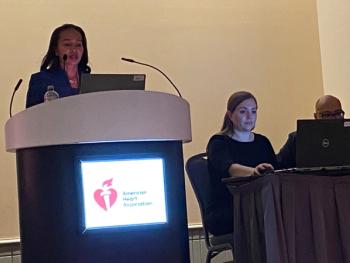
Healthcare researchers say it’s critical to get more women, Black and Latino participants in clinical trials. It can be done, but researchers and institutions must make the effort.

Several researchers point out that women face higher stress due to family duties, gender roles and social determinants. They say it’s an area worthy of more attention in research.

Positive findings from their placebo-controlled trial show that angioplasty is an evidence-based, first-line treatment for patients with stable angina and that they needn't necessarily be treated first with antianginal medications, say the ORBITA-2 investigators.

Results from the SELECT trial presented at the American Heart Association Scientific Sessions meeting suggest that the GLP-1 inhibitor may have a role in cardiovascular disease protection beyond weight loss and diabetes.

The Choosing Wisely campaign has helped with overscreening and overtreatment. Some experts say better management of end-of-life care and value-based payment would also help steer oncology away from care with poor cost-benefit ratios.

Otsuka American Pharmaceutical is tracking payer practices and attitudes about digital therapeutics with a series of four surveys.


Wayne B. Batchelor, M.D., Associate Director of Inova Heart and Vascular Institute, discusses the latest advancements in less invasive techniques for treating pulmonary regurgitation.

The evidence for active surveillance is stronger, but advances in imaging have improved the ability to distinguish between indolent and aggressive forms of prostate cancer.

Tirzepatide, with the brand name Zepbound, is expected to be available by the end of the year in six doses at a list price of $1,059.87, which is about 20% lower than semaglutide.

Briana Contreras, an editor with Managed Healthcare Executive, spoke with Harsha Rajasimha, MD, founder and executive chairman of IndoUSrare, in this month's episode of Tuning in to the C-Suite podcast. The conversation was about how the disparity in diversity and ethnicity in rare disease clinical trials in the U.S. has led to gaps in understanding diseases and conditions, jeopardizing universal health, and increasing the economic burden of healthcare.

Researchers at the University of California, San Francisco, report positive results from the No One Waits study.

One patient had complications that resulted in no light perception — effectively, blindness — in the the treated eye.
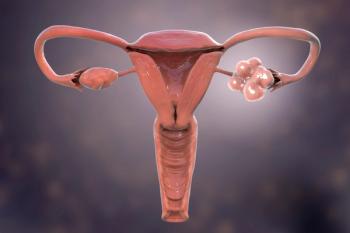
A ketogenic diet, which is low carbohydrates and rich in fat, is linked to successful in vitro fertilization in people with polycystic ovary syndrome.

Approximately one-third of the patients assigned to 16-week intervals of 8-mg formulation of Eylea changed to a 24-week interval during the second year of. the study, according results presented at the annual meeting of the American Academy of Ophthalmology. The PHOTON study enrolled people with diabetic macular edema.
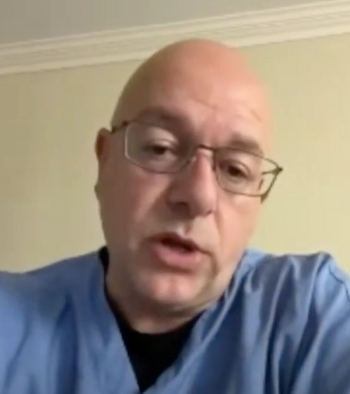
Albert S. Khouri, M.D., a professor of ophthalmology at the Rutgers New Jersey Medical School, discusses teleophthalmology’s role in outreach efforts and improving ophthalmic care in the emergency room.

Albert S. Khouri, M.D., says ophthalmic care lends itself to telehealth because it is image based. As with many other areas of medicine, the COVID-19 pandemic accelerated adoption.

Delivering medication in the suprachoroidal space would be less invasive than intravitreal injections used to deliver many eye treatments.

Private equity (PE) can bring capital investment to retina specialty practices and significantly increase the incomes of the physicians, said a proponent during a debate on private equity at the AAO meeting. The retina specialist arguing against PE said physicians lose control of their practices and the loyalty of their staff and that profits get prioritized over patients.

Suber S. Huang, M.D., MBA, a panelist for a session about late-breaking research, said the presentation about Syfovre complications among patients treated at the Wolfe Eye Clinic in Iowa is one of the most important of this year's annual meeting. Five patients experienced complications from the new drug for geographic atrophy.
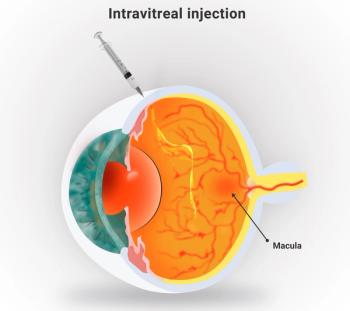
Results at 96 weeks were similar to those at 48 weeks. The FDA approved the 8-mg formulation of Eylea (aflibercept) in August 2023.